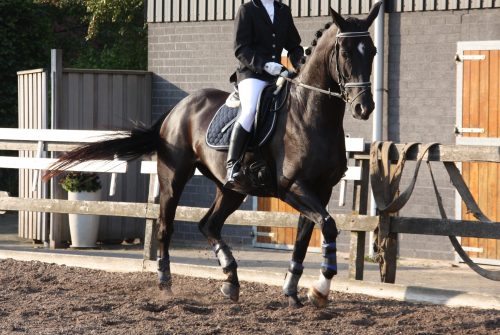Falling off a horse and ho’oponopono

How does falling off a horse relate to ho’oponopono? My riding instructor explained it to me.
“Horses don’t throw you, you fall off.”
Those were the words of my riding instructor every time I landed on the ground uttering the oft-repeated phrase, “the horse threw me.”
What she meant was that if I went off the horse, it was because I wasn’t paying attention to signals the horse was giving, or wasn’t seated well. Because if one is paying attention, and is well-seated, you will stay on no matter what the horse does.
I find this an apt analogy for how to go through life well. If we are balanced, discerning, and paying attention, we won’t be thrown off kilter by life’s bumps. And we won’t be blaming the horse, or other people, which is often the go-to reaction when something doesn’t go the way we want it.
This may explain how we got a leader in this country that most people are unhappy with. How did he get elected? Were we paying attention? Apparently many of us were not.
Author Simon Sinek suggests that our politicians may be a reflection of us, and that we perhaps get the politicians we deserve.
“Maybe we’re the ones who are divisive and narcissistic. Maybe instead of demanding they change, we should change and take accountability for our own actions. And then we’ll get the politicians we deserve.”
FALLING OFF A HORSE AND HO’OPONOPONO
The solution reminds me of the Hawaiian spiritual practice of ho’ oponopono – taking 100% responsibility for our own actions through reconciliation and forgiveness.
It’s best illustrated by the well-known story of how Ihaleakala Hew Len, Ph.D., a practitioner of ho’oponopono, cured a ward of the criminally insane at the Hawaii State Mental Hospital without ever seeing one of them in person.
The ward was so violent that the inmates were shackled and sedated regularly, and there was a high turnover of nurses, doctors and staff.
Hew Len offered to do therapy without seeing them.
Within a few months patients didn’t need shackling or sedating; a few months after that they started being released and pronounced as healed.
Within two years most were released.
Within four years the ward was closed.
How did that happen if Dr. Hew Len never saw one patient?
Using the practice of ho’oponopono, which means to make right, he took personal responsibility for contributing to the mental state of each one of them.
He sat down with the medical file of each patient and practiced ho’oponopono. He looked at their file and would feel things in his body: revulsion, repulsion. When he looked at their chart, he noted what he felt and worked on releasing and healing it. As he did that the other person got better.
Why does this work? Because, as indigenous people teach, we are all related. If one person is suffering in the world, we are all affected by it. And on some level we contributed to it.
Every time we curse the person who cut us off on the highway, judge someone for being homeless, are rude to a salesperson, we are contributing to the suffering in the world.
We need to heal ourselves and let that healing flow out into the world.
Hew Len describes the process as cleaning: cleaning up our own unconsciousness and the negative energy it has put out into the world.
The best way to clean, or practice ho’ oponopono, is by repeating four statements:
- I’m sorry [for being unconscious and contributing to the suffering of the world].
- Please forgive me [for my unconscious actions]
- I love you
- Thank you [to the Divine for helping me erase the old]
The more you clean, the more inspiration you can receive – because you’ve made room for it.
Total responsibility means accepting that we create everything in our lives.
And not blaming the horse when we fall off.
“The world we are experiencing today is the result of our collective consciousness and if we want a new world, each of us must start taking responsibility for helping create it.” ~ Rosemary Fillmore Rhea, author, granddaughter of Unity founders Charles and Myrtle Fillmore
Molly Larkin is the co-author of the international best-seller “The Wind Is My Mother; The Life and Teachings of a Native American Shaman” and other books on health. She is passionate about helping people live life to their fullest potential through her classes, healing practice and blog at www.MollyLarkin.com

